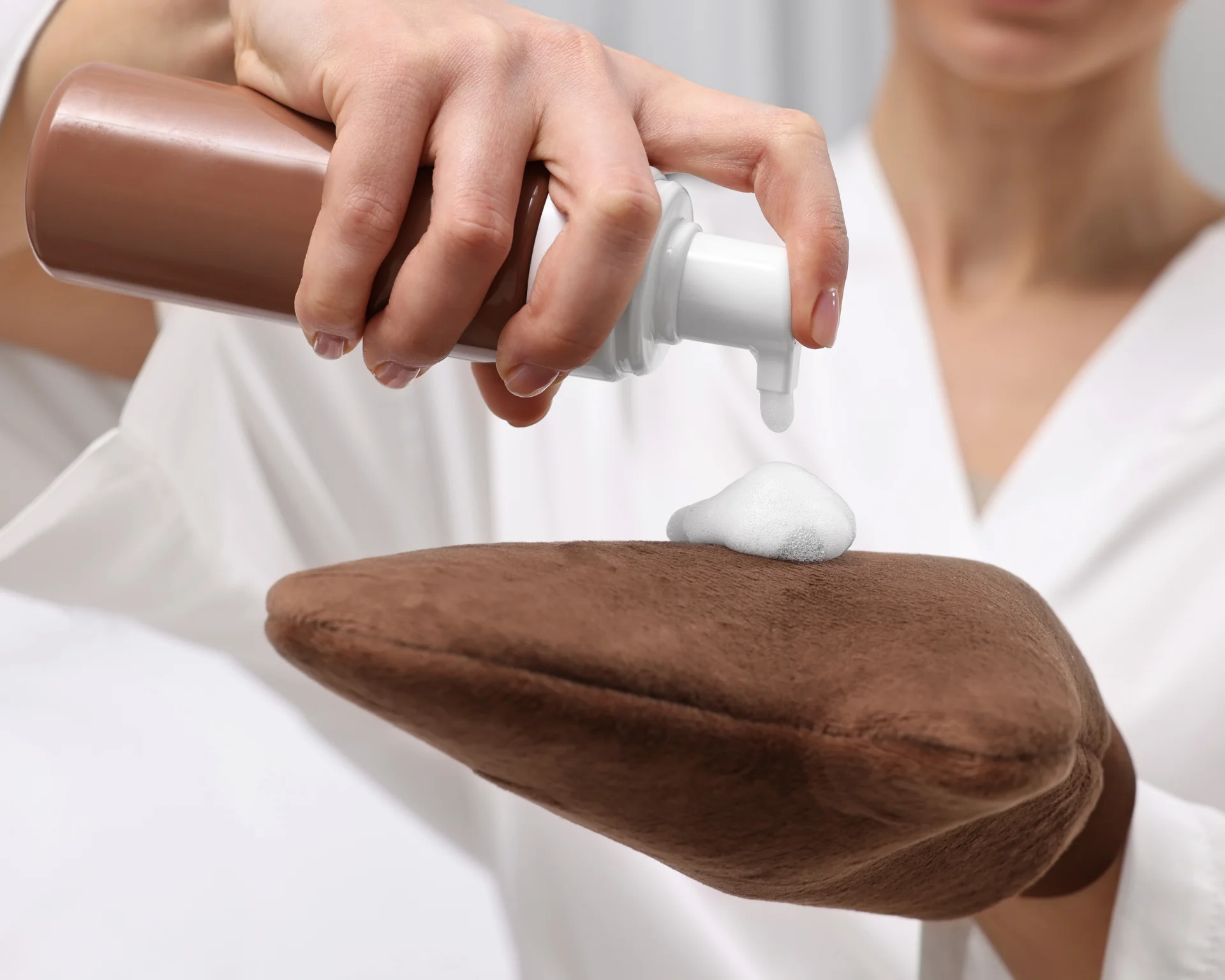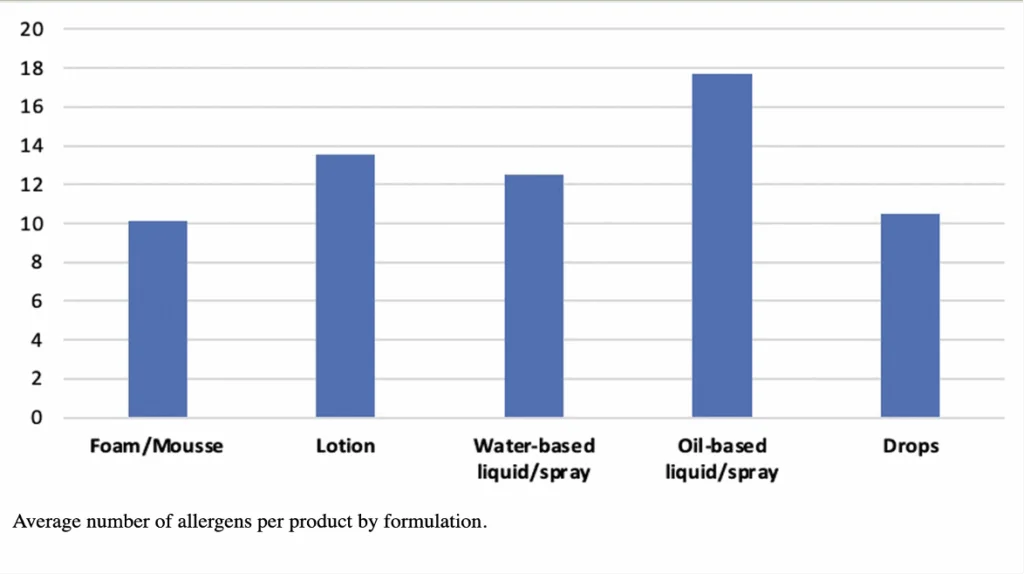Glow Carefully: The Hidden Allergens in Self-Tanners
Self-tanners are safer and more convenient than sunbathing or tanning beds, but they may still cause health concerns like allergic reactions.

Read Time: 2 minutes
Published:
Once a sign of wealth and privilege, pale skin reflected a life of indoor leisure, whereas a tan signaled outdoor labor. Today, a tan often signals affluence, suggesting sunny vacations and outdoor leisure time. Whether you’re catching rays at the beach, hopping into a tanning bed, or going the DIY route with self-tanners, it’s all about achieving that golden glow. But at what cost to your health?
Ultraviolet (UV) rays from the sun and tanning beds elevate the risk of melanoma and other skin cancers. Self-tanners (also known as sunless tanning) have become a popular alternative that mitigates skin cancer risk and damage.
Self-tanners are applied topically and ideally leave a temporary, natural-looking tan without UV damage. While convenient and safer than the sun or tanning beds, there may still be health downsides to self-tanning, most commonly allergic reactions.
Jazmin Newton and colleagues analyzed top-selling self-tanning products for the presence of common contact allergens. The ingredients of 44 of the top self-tanners from major U.S. retailers were compared against 114 common contact allergens from the North American Contact Dermatitis Group and an FDA-approved allergen patch test.

Each product contained an average of nearly 12 contact allergens. Most self-tanners (84.1%) contained fragrances or other scented botanicals, such as essential oils and extracts. The Ed Hardy Coconut Kisses Golden Tanning Lotion had the most allergens (24), including 14 different scented botanicals. Other frequent allergens were propylene glycol, vitamin E, polysorbate 80, and benzyl alcohol.
The primary side effects of most of the allergens are short-term contact dermatitis and hives. Long-term exposure to these allergens can result in chronic skin lesions, scaling, thickening, and/or cracking skin. While the side effects are not as serious as cancer, they can be both physically and psychologically uncomfortable, disfiguring, and disruptive to everyday life.
While self-tanning avoids the cancer risks of UV exposure to achieve that desired glow, most products still carry a high likelihood of allergic reactions, especially from fragrances and oils used to mask the chemical odor of the active ingredient. For those committed to having a sun-kissed glow, consider getting allergy tested or choosing fragrance-free products to help find products safe for your skin.



